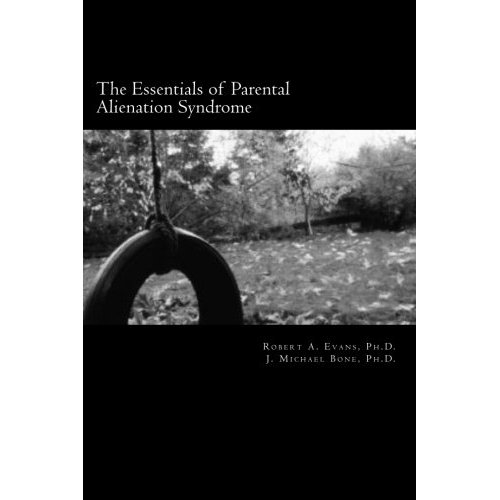How Can One Prepare for & Present Issues of a Parental Alienation Case?
There are five key components to defeating a parental alienation case:
 1. Understanding how tremendously harmful the circumstance can get with parental alienation and how quickly it can emerge. There may be small changes in the child initially and then things can spiral out of control in a very short time. Parental alienation is clearly a form of abuse. The symptoms, as cited above, are harmful. The long term effects range from increased depression, anxiety, relationship difficulties to suicide. In severe cases there is a high probability that the alienating parent has serious psychological problems such as dramatic, erratic unstable disorders including borderline narcissistic or sociopathic personality.
1. Understanding how tremendously harmful the circumstance can get with parental alienation and how quickly it can emerge. There may be small changes in the child initially and then things can spiral out of control in a very short time. Parental alienation is clearly a form of abuse. The symptoms, as cited above, are harmful. The long term effects range from increased depression, anxiety, relationship difficulties to suicide. In severe cases there is a high probability that the alienating parent has serious psychological problems such as dramatic, erratic unstable disorders including borderline narcissistic or sociopathic personality.
According to Dr. Steve Miller (2014 the alienating parent is frequently seen as the parent whom the child must please. From the child’s perspective, aligning with that parent is necessary. While the parent and child “appear” close, it can be too close. Their relationship is neither warm, nor loving, nor healthy. Many professionals can fail to recognize pathological enmeshment and often mistake it for a healthy relationship with the abusive parent. Severe enmeshment is a potentially life-threatening emergency that requires swift, effective intervention.
2. Document a chronological history of how the situation with the child went from loving and caring to hesitating, cautious and on to oppositional to rejecting and accusatory. This is accomplished with photographs, videos, calendars, school records and any other documentation that demonstrates the previously positive, loving, fulfilling and wonderful relationship that once existed with the child and how parental alienation turned it into something hurtful and damaging.
3. Psychological Expertise to support the legal team or pro se parent with a deep psychological understanding of parental alienation, an awareness of the relevant scientific literature and the current forensic guidelines, rules and procedure set for addressing parental alienation both in and out of the courtroom. Florida is now a Daubert state, since July 1, 2013. No longer can such techniques as Rorschach ink blots, figure drawings, play therapy, sand trays, sentence completions, etc. be used without discussing their severe and often eliminating controversies. We need to present and discuss alternative hypotheses as well as cite actual and often contradictory evidence from collateral sources.
4. Effective Presentation of the history, of how this happened, that exposes parental alienation that is keyed to the child presently as well as for the future through asking (examination/cross examination) the right questions and citing relevant research so the court gets the proper information in order to make informed decisions. Failure to do so will often hasten, deepen and expand chaotic, unpredictable parental alienation processes. Alienated children have been subjected to “mind control” techniques: programmed or “brainwashed.” Programming a child is very easy to do and given most programmers are the custodial parent with unfettered access to the child they have the opportunity to do so. As with cult members, enmeshed family members tell consistent stories. Thus, they may be deemed credible by unsuspecting parenting coordinators, evaluators, guardians, etc. who do not understand pathological enmeshment or its psychodynamics. The key point is not whether the child is strongly aligned with a favored parent, or how strongly the child has rejected the other parent — but rather, why. The severity of a child’s rejection is a marker for the severity of the parent’s alienation behavior. In the absence of abuse or neglect, the more extreme the rejection, the greater the probability it is due to alienation, not estrangement.
5. Exposing the counter intuitiveness of these cases. The alienating parent will try to spin everything that the rejected parent does and says into a negative. Every behavior will be spun into a lie. The truth needs to be exposed. Observers often confuse behavior that is situational or environmental (external) with behavior that is dispositional or characterological (internal). To do so is called the fundamental attribution error. Alienating parents typically present as calm, charming, convincing and credible. They are master manipulators. Targeted parents are typically anxious, agitated, angry and afraid. The rejected parent is a trauma victim. Many professionals “get it backwards” (Miller, 2014).
References
Barden, R. C. (2013). Protecting the integrity of the family law system: Multidisciplinary processes and family law reform. In D. Lorandos, W. Bernet & S. R. Sauber, Eds. Parental alienation: The handbook for mental health and legal professionals. Illinois: Charles C. Thomas, Ltd.
Clawar, S. S., & Rivlin, B. V., (2013). Children held hostage, Second edition: Identifying brainwashed children, presenting a case, and crafting solutions. Chicago, IL: American Bar Association Press.
Clawar, S. S., & Rivlin, B. V., (1991). Children held hostage: Dealing with programmed and brainwashed children. Chicago, IL: American Bar Association Press.
Ceci, S., & Bruck, M. (1996). Jeopardy in the courtroom: A scientific analysis of children’s testimony. Washington, DC: American Psychological Association Press.
Cialdini, R. B (1993). Influence: Science and practice. New York: Harper Collins Press
Lorandos, D. (2013). Legal interventions in cases of parental alienation. In D. Lorandos, W. Bernet & S. R. Sauber, Eds. Parental alienation: The handbook for mental health and legal professionals. Chicago Illinois: Charles C. Thomas, Ltd.
Miller, S. (2014) personal communication.
Miller, S. (2013). Clinical reasoning and decision making in cases of child alignment. In A. Baker & S. R. Sauber, Eds. Working with alienated children and families. New York: Routledge.



This is how I presented with the original Court appointed Evaluator:
“Highly anxious mother”
“Very fearful that father would manipulate the children, professionals and Court in a manner that would undermine her parenting in bolster his position.”
“Fears losing control”
“Trouble managing stress”
It’s amazing how similar that is to how Dr Miller explains how target parents present. I will definitely point this out to our upcoming PA Evaluator.